BEAUTY + STYLE
30 Essential Vitamins and Minerals Your Body Needs
Published
8 months agoon

Shutterstock
Maintaining good health requires a balanced intake of essential vitamins and minerals that support various bodily functions. These nutrients are vital for processes such as immune function, energy production, bone health, and cellular repair. While a diverse diet can provide most of these nutrients, understanding their roles can help ensure you meet your body’s needs. From vitamins that bolster your immune system to minerals that strengthen your bones, each nutrient plays a crucial part in your overall well-being. Explore these 30 key vitamins and minerals to learn more about their importance and food sources.
Vitamin A

Shutterstock
Vitamin A is essential for vision, immune function, and skin health. It helps maintain healthy vision, particularly in low light, and supports the immune system by promoting the health of the skin and mucous membranes. Vitamin A also plays a crucial role in cell growth and differentiation. It can be found in foods like carrots, sweet potatoes, and leafy greens.
Vitamin C

Shutterstock
Vitamin C is a powerful antioxidant that helps protect cells from damage. It is crucial for the production of collagen, which is important for the health of skin, blood vessels, and bones. Vitamin C also enhances the absorption of iron from plant-based foods and supports the immune system. It can be found in citrus fruits, strawberries, bell peppers, and broccoli.
Vitamin D

Shutterstock
Vitamin D is essential for maintaining healthy bones and teeth by promoting the absorption of calcium. It also supports immune system function and helps regulate mood. The body can produce vitamin D when the skin is exposed to sunlight, and it can also be obtained from foods like fatty fish, fortified dairy products, and egg yolks. A deficiency in vitamin D can lead to bone disorders such as rickets in children and osteomalacia in adults.
Vitamin E

Shutterstock
Vitamin E acts as an antioxidant, helping to protect cells from damage caused by free radicals. It is important for immune function, skin health, and cellular communication. Vitamin E also helps widen blood vessels and prevent blood clots. It can be found in nuts, seeds, spinach, and broccoli.
Vitamin K
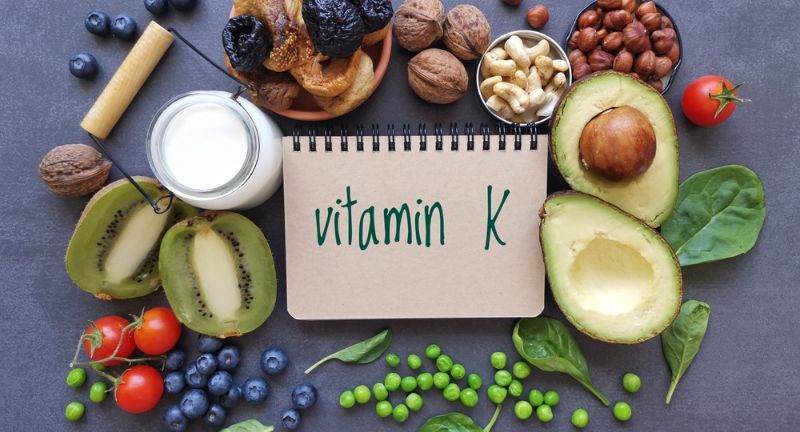
Shutterstock
Vitamin K is crucial for blood clotting and bone health. It helps the body produce proteins needed for blood clotting and bone metabolism. A deficiency in vitamin K can lead to excessive bleeding and weakened bones. It can be found in leafy green vegetables, such as kale, spinach, and broccoli, as well as in fish, meat, and eggs.
Calcium

Shutterstock
Calcium is essential for building and maintaining strong bones and teeth. It also plays a vital role in muscle function, nerve signaling, and blood clotting. A deficiency in calcium can lead to osteoporosis and other bone disorders. Good sources of calcium include dairy products, leafy green vegetables, and fortified plant-based milks.
Iron
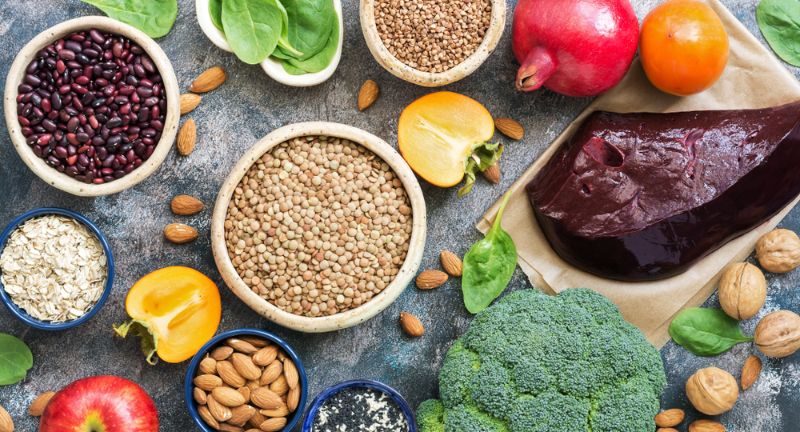
Shutterstock
Iron is crucial for the production of hemoglobin, a protein in red blood cells that carries oxygen throughout the body. It also supports energy production and immune function. Iron deficiency can lead to anemia, characterized by fatigue and weakened immunity. Iron-rich foods include red meat, poultry, fish, lentils, beans, and fortified cereals.
Magnesium

Shutterstock
Magnesium is involved in over 300 biochemical reactions in the body, including muscle and nerve function, blood glucose control, and protein synthesis. It also supports a healthy immune system, keeps the heartbeat steady, and helps bones remain strong. A deficiency in magnesium can lead to muscle cramps, mental disorders, and osteoporosis. Good sources of magnesium include nuts, seeds, whole grains, and leafy green vegetables.
Potassium
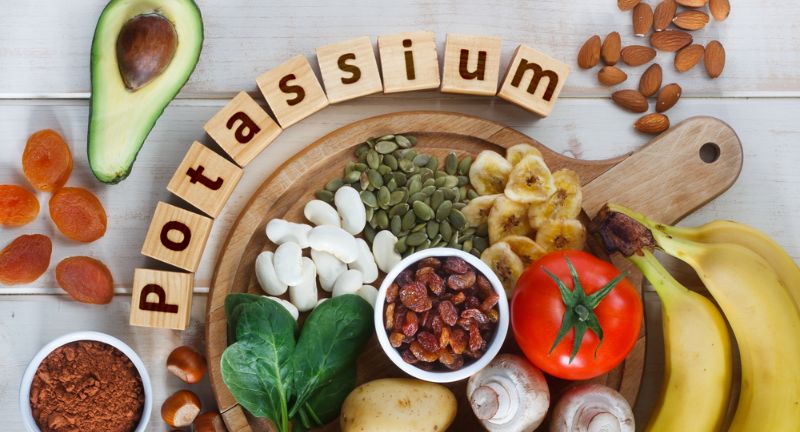
Shutterstock
Potassium is essential for maintaining proper fluid balance, nerve function, and muscle contractions. It also helps regulate blood pressure and supports cardiovascular health. A deficiency in potassium can lead to weakness, fatigue, and muscle cramps. Good sources of potassium include bananas, oranges, potatoes, and spinach.
Zinc

Shutterstock
Zinc is important for immune function, wound healing, DNA synthesis, and cell division. It also supports normal growth and development during pregnancy, childhood, and adolescence. A deficiency in zinc can lead to weakened immunity, hair loss, and delayed wound healing. Good sources of zinc include meat, shellfish, legumes, and seeds.
Folate (Vitamin B9)

Shutterstock
Folate, also known as vitamin B9, is crucial for DNA synthesis, cell growth, and the formation of red and white blood cells. It is particularly important during periods of rapid growth, such as pregnancy and fetal development. A deficiency in folate can lead to neural tube defects in newborns and megaloblastic anemia. Good sources of folate include leafy green vegetables, legumes, and fortified cereals.
Vitamin B12

Shutterstock
Vitamin B12 is essential for red blood cell formation, nerve function, and DNA synthesis. It also plays a role in maintaining healthy brain function. A deficiency in vitamin B12 can lead to anemia, fatigue, and neurological issues. Good sources of vitamin B12 include meat, fish, dairy products, and fortified plant-based milks.
Vitamin B6
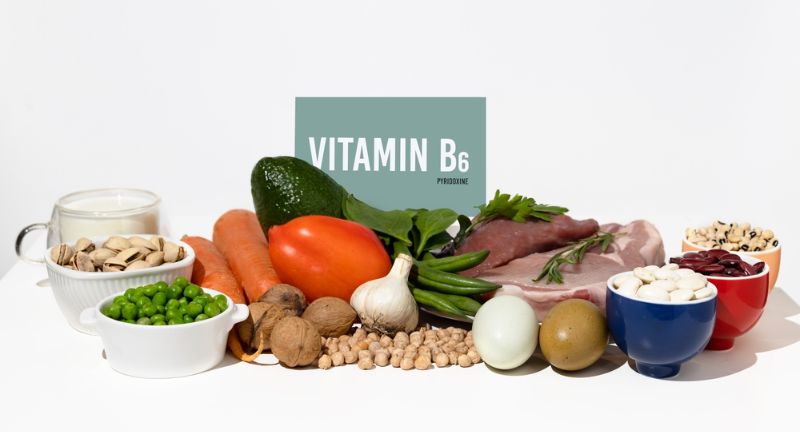
Shutterstock
Vitamin B6 is important for protein metabolism, cognitive development, and the production of neurotransmitters. It also supports immune function and red blood cell formation. A deficiency in vitamin B6 can lead to anemia, depression, and weakened immunity. Good sources of vitamin B6 include poultry, fish, potatoes, and bananas.
Thiamin (Vitamin B1)

Shutterstock
Thiamin, also known as vitamin B1, is essential for energy production, carbohydrate metabolism, and nerve function. It helps convert nutrients into energy and supports the health of the nervous system. A deficiency in thiamin can lead to beriberi, a condition characterized by weakness, nerve damage, and heart problems. Good sources of thiamin include whole grains, legumes, and pork.
Riboflavin (Vitamin B2)
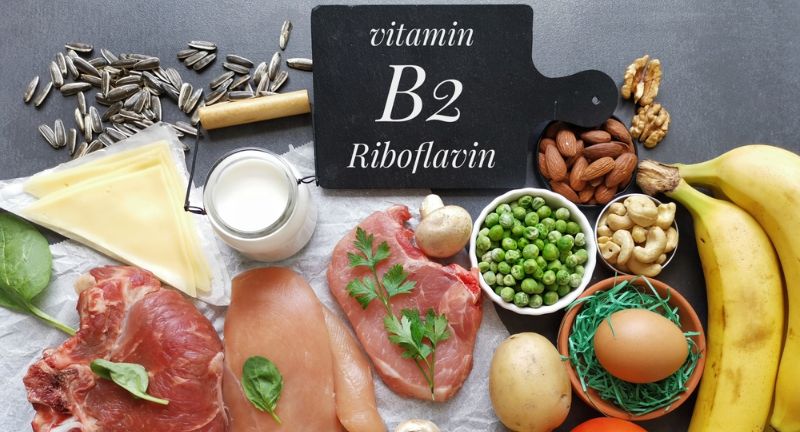
Shutterstock
Riboflavin, or vitamin B2, is important for energy production, cellular function, and the metabolism of fats, drugs, and steroids. It also helps maintain healthy skin and eyes. A deficiency in riboflavin can lead to sore throat, inflammation of the mouth, and skin disorders. Good sources of riboflavin include dairy products, eggs, green leafy vegetables, and fortified cereals.
Niacin (Vitamin B3)
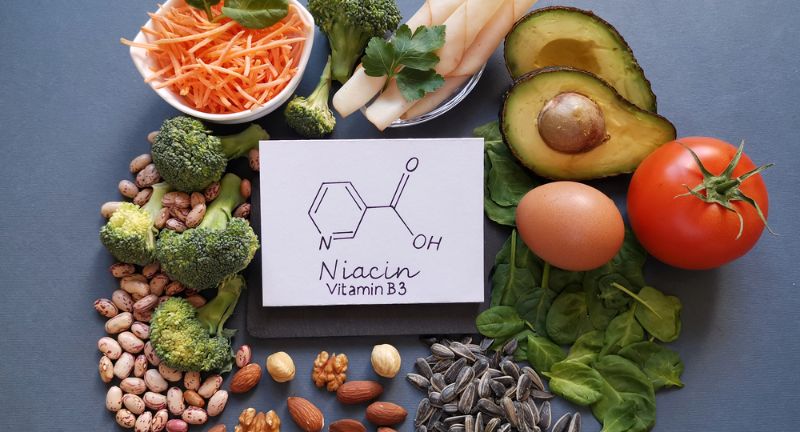
Shutterstock
Niacin, or vitamin B3, is essential for energy production, DNA repair, and the metabolism of fats and carbohydrates. It also helps maintain healthy skin and nervous system function. A deficiency in niacin can lead to pellagra, characterized by dermatitis, diarrhea, and dementia. Good sources of niacin include meat, fish, nuts, and grains.
Pantothenic Acid (Vitamin B5)

Shutterstock
Pantothenic acid, or vitamin B5, is important for the synthesis of coenzyme A, which is essential for fatty acid metabolism. It also helps produce and metabolize proteins and fats. A deficiency in pantothenic acid is rare but can lead to fatigue, irritability, and numbness. Good sources of pantothenic acid include meat, eggs, whole grains, and avocados.
Biotin (Vitamin B7)

Shutterstock
Biotin, also known as vitamin B7, is essential for the metabolism of carbohydrates, fats, and proteins. It supports healthy hair, skin, and nails. A deficiency in biotin can lead to hair loss, skin rashes, and neurological issues. Good sources of biotin include eggs, nuts, seeds, and fish.
Phosphorus
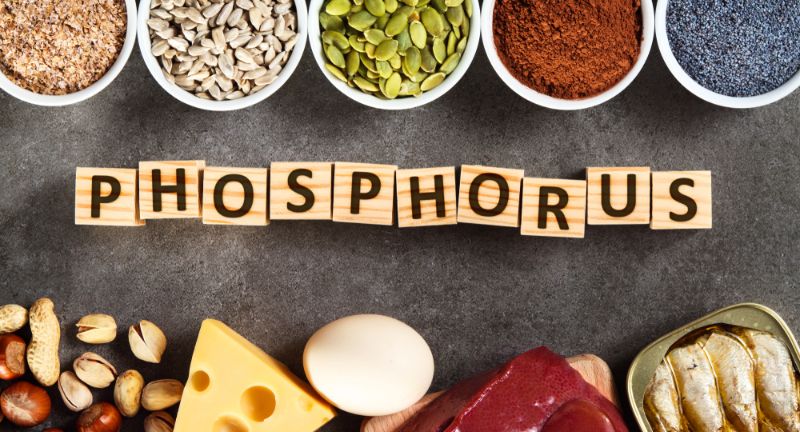
Shutterstock
Phosphorus is essential for the formation of bones and teeth, as well as the production of energy in the body. It also plays a role in the synthesis of DNA and RNA. A deficiency in phosphorus can lead to bone pain, muscle weakness, and fatigue. Good sources of phosphorus include meat, fish, dairy products, and nuts.
Selenium

Shutterstock
Selenium is a trace mineral that plays a critical role in metabolism and thyroid function. It acts as an antioxidant, helping to protect cells from damage. A deficiency in selenium can lead to heart disease, infertility, and immune dysfunction. Good sources of selenium include Brazil nuts, seafood, and whole grains.
Iodine
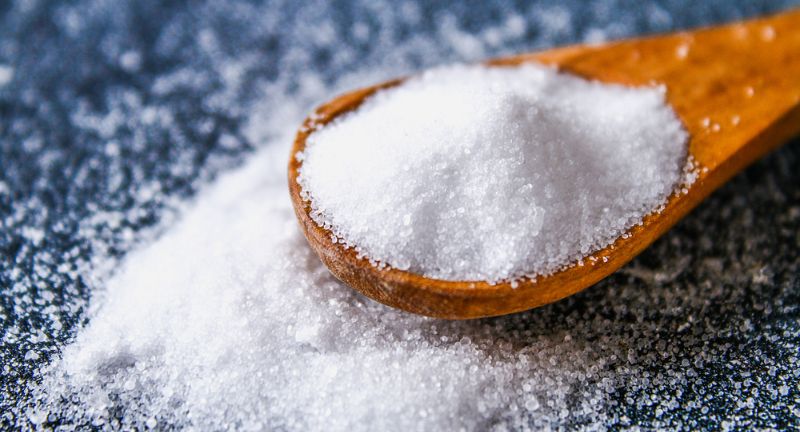
Shutterstock
Iodine is essential for the production of thyroid hormones, which regulate metabolism, growth, and development. A deficiency in iodine can lead to goiter, hypothyroidism, and developmental issues in children. Good sources of iodine include iodized salt, seafood, dairy products, and eggs.
Copper

Shutterstock
Copper is important for the formation of red blood cells, the absorption of iron, and the maintenance of healthy bones, blood vessels, and nerves. It also supports immune function and acts as an antioxidant. A deficiency in copper can lead to anemia, osteoporosis, and cardiovascular issues. Good sources of copper include shellfish, nuts, seeds, and whole grains.
Manganese

Shutterstock
Manganese is essential for bone formation, blood clotting, and reducing inflammation. It also plays a role in carbohydrate and fat metabolism. A deficiency in manganese can lead to weakened bones, joint pain, and fertility issues. Good sources of manganese include nuts, seeds, whole grains, and leafy green vegetables.
Chromium

Shutterstock
Chromium is a trace mineral that enhances insulin action and helps regulate blood sugar levels. It also plays a role in the metabolism of carbohydrates, fats, and proteins. A deficiency in chromium can lead to impaired glucose tolerance and increased risk of diabetes. Good sources of chromium include broccoli, grape juice, whole grains, and meats.
Fluoride
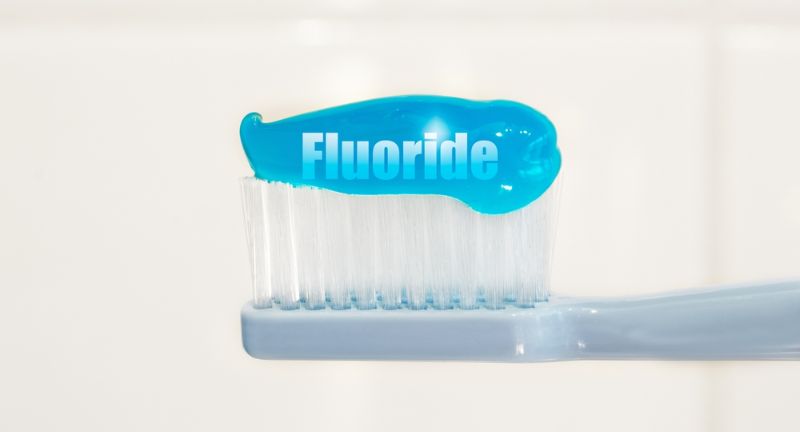
Shutterstock
Fluoride is important for the maintenance of healthy teeth and the prevention of dental cavities. It helps to strengthen tooth enamel and reduce the risk of tooth decay. Fluoride is commonly found in public water supplies, toothpaste, and mouth rinses. Adequate intake of fluoride is essential for dental health and overall well-being.
Chloride

Shutterstock
Chloride is an essential electrolyte that helps maintain fluid balance, blood volume, and blood pressure. It is a component of stomach acid (hydrochloric acid), which is necessary for digestion. A deficiency in chloride can lead to dehydration, weakness, and metabolic alkalosis. Good sources of chloride include table salt, seaweed, tomatoes, and olives.
Sodium

Shutterstock
Sodium is an essential electrolyte that helps regulate fluid balance, nerve function, and muscle contractions. It is crucial for maintaining blood pressure and overall hydration. However, excessive sodium intake can lead to high blood pressure and other health issues. Good sources of sodium include table salt, processed foods, and some natural foods like celery and beets.
Vitamin K2

Shutterstock
Vitamin K2 plays a crucial role in bone health and cardiovascular health by helping to direct calcium to the bones and teeth, preventing it from depositing in the arteries. It works in conjunction with vitamin D to ensure proper calcium metabolism. Vitamin K2 is found in fermented foods, dairy products, and animal products like meat and liver. Ensuring adequate intake of K2 helps support healthy bones and prevents calcification of blood vessels.
Choline
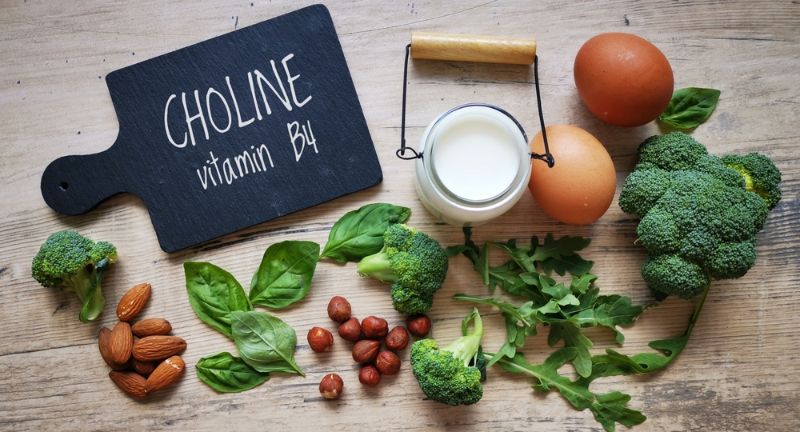
Shutterstock
Choline is essential for brain health, liver function, and muscle movement. It is a component of cell membranes and a precursor for acetylcholine, a neurotransmitter involved in memory and muscle control. A deficiency in choline can lead to liver damage and neurological disorders. Good sources of choline include eggs, liver, fish, and peanuts.
Boron

Shutterstock
Boron is a trace mineral that supports bone health, brain function, and the regulation of hormones. It aids in the metabolism of minerals such as calcium, magnesium, and phosphorus, crucial for bone growth and maintenance. Boron also impacts the production and use of vitamin D and estrogen, which are important for bone and reproductive health. Good sources of boron include fruits, leafy vegetables, nuts, and legumes.
Conclusion
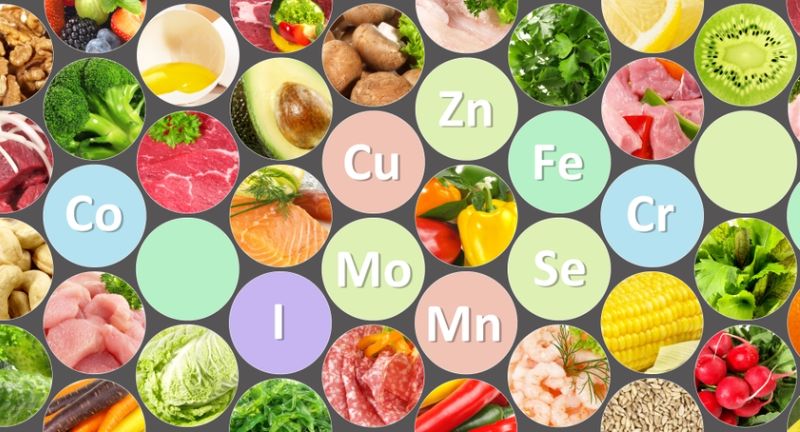
Shutterstock
Understanding the importance of vitamins and minerals is key to maintaining a healthy lifestyle. These nutrients support critical bodily functions and overall well-being, emphasizing the need for a balanced and varied diet. By incorporating a wide range of nutrient-rich foods, you can help ensure your body gets the essentials it needs. Remember, each vitamin and mineral plays a unique role in your health, contributing to everything from strong bones to a robust immune system. Prioritizing your nutritional intake is a vital step towards achieving and sustaining optimal health.
Related Topics:

More From Lifestylogy
-


Amy Schumer Graces Cover of British GQ Magazine – Wins…
-


Xbox Teams Up With Gucci for Special Edition Console
-


Rihanna’s Fenty Line Coming to Ulta
-


The White House Announces Christmas Decor Theme for 2020
-


Chrissy Teigen Reveals Plastic Surgery Concerns
-


Five Surprising Uses for Vicks VapoRub
-


Summer Hair Woes? Ketchup May Help!
-


New NFL Hats Help With the Fight Against Cancer
-


The Property Brothers Reveal the Two Paint Colors to Avoid